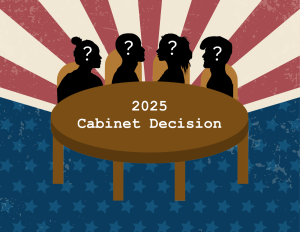Over the past three years, the Theatre and Dance Inclusion, Diversity, Equity, and Accessibility (IDEA) Council has continuously worked toward cultural shifts to address racial disparities and injustices in the theatre department.
“The IDEA council is almost like a student voice in a way,” said Juan Cabrera (‘23), a student serving on the council. “We have a few student and faculty representatives that come together to help represent underrepresented voices in the community here at the Rollins Theatre Department.”
In the summer of 2020, the Rollins Theatre Students and Alumni of Color Action Group, composed of alumni and students of color, worked together to address the injustices occurring in the department. They developed a 46-page document describing the harm that they had encountered on stage and in the classroom, as well as a thorough list of requests for reform.
“One of the first courses of action that this council really took before it was even called the IDEA council was creating these educational groups for the professors here to address and learn about how they’ve played a part in oppression within the theatre department here,” said Cabrera. “A lot of students and alumni broke up into three groups and had conversations with these professors throughout the entire summer of 2020.”
“At first, we were met with a lot of backlash to the ideas that were being put out there,” Cabrera added. “It was hard for the faculty members and professors to recognize that they could contribute to a harmful racist environment at times very directly and at times indirectly. So, addressing it was the first step and the acceptance of the faculty that they play a part in this was a huge step.”
Students, faculty, and alumni collaborated using the Action Group’s framework to produce the Anti-Racism Action Plan in November of that same year.
“It’s not only to address the racial disparities but to keep the faculty and students accountable and responsible for their actions to ensure that change will continue to come,” Cabrera noted. As a result of the Action Group’s work and the Action Plan that followed, the Theatre & Dance Inclusion, Diversity, Equity, and Accessibility (IDEA) Council was founded. “It’s a plan that they have now published on the Annie Russell Theatre website as a public statement that ‘we are going to follow this’ and this is our policy from now on.”
According to Alumna Alexandria Crawford (‘16), Rollins Theatre Students and Alumni of Color action group members also went public on social media with their call to action that same month, describing over three days the work they had been doing that led to the action plan.
Activism has always played a big part in Cabrera’s life. When he came into this department before the Anti-Racism Plan was developed, he saw problematic portrayals of people of color.
“It was so disheartening and isolating that when I realized that other people were going through this too, it meant a lot to me,” said Cabrera, “I saw the work that people were doing and the changes that were happening and after a year of not being a part of that as a student representative role, I just knew that that wasn’t something that I could put off any longer. I just knew that I didn’t want any incoming freshman to feel the way I felt my freshman year. That’s why I joined the IDEA council.”
This past August, the Department of Theatre and Dance approved a Color-conscious and Identity-conscious Handbook created by IDEA consultant Felichia Chivaughn.
According to the Associate Director of Theatre, Communications & Operations, Chelsea Hilend, “This handbook touches on all areas of production and commits us to a casting, design, rehearsal, build, and performance process that celebrates the identities of artists.”
Throughout this year, the IDEA Council had several meetings that included interactive activities for the students. For one, they investigated the Color-conscious and Identity-conscious handbooks through the lens of students’ areas of interest, fostering discussions about the implementation of these concepts on and offstage. Cabrera remembered his freshman year at Rollins, where the first show that he saw, “The Humans” had an all-white cast, despite the show being written at the very least to have an Arab person in a specific role as it deals with a post 9/11 America.
“Not only did they erase the identity, but they also erased the play’s original intent,” Cabrera said. “Color-conscious and identity-conscious casting is a general idea to ensure that that doesn’t happen and to ensure that we are being conscious of color.”
“I think that a problem that a lot of people, including the faculty, before this, were perpetrators of was the idea of being ‘color blind,’ so people do not see race, which is not true,” he added. “I think that everyone sees race, it is big culturally in our society, as much as we like to pretend that it isn’t. To ignore it is actually perpetuating racism further, not dismantling it.”
The IDEA council organized a range of activities to involve diversity and promote awareness. For instance, they hosted an open discussion on accessibility in theatre and dance spaces, highlighting the importance of making the arts accessible to everyone. Additionally, Dr. Marjorie Trueblood and the Student Center for Inclusion and Belonging offered allyship training to promote understanding within the community. Ani Henry-Walker (‘25) built a trivia game that explored the achievements of Black theatre and dance performers throughout history, to teach about the cultural contributions of Black artists. The IDEA council also collaborated with Rollins Improv Players to foster relationships and strengthen self-advocacy skills, allowing members to gain confidence in expressing themselves and advocating for their needs.
When asked about any cultural changes that the Council continues to work towards, Cabrera spoke on a curriculum change: “We’ve made a lot of great changes in bringing in guest directors and workshops and changing the atmosphere. But my fear is that once I graduate, we’ll forget history and the importance of these things and it will be a continuous cycle unless we implement it into the curriculum to ensure that it stays a part of Rollins culture.”
Cabrera moved to Winter Park from Miami and was initially met with shock at what was different because nobody looked or felt like him or told the stories that he told in Miami. However, his passion for acting drove him when dealing with the face of adversity. “I think what I’ve realized in my time here at Rollins is that acting and advocacy aren’t separate. They’re something that’s together and can flow as one. Something that I’ve realized really recently that I think has played a huge part in this overarching theme that I’ve learned about being an actor at Rollins and what I want to do is that being an actor or anything of color, being the best you can be in that role, is advocacy within itself. Because the biggest problem that has played in our nation, in general, is a lack of representation, so people will only see Latinos that are housekeepers or things like that. So, I want to empower people of color to be the best they can be in our role. I want to be the best actor I can be and the best advocate I can be,” he added.
Cabrera, who will be graduating this Spring, reflected on what the theatre department has taught him over the years: “I think this department has taught me to stand up for myself and for underrepresented people, but it was through trauma, which is unfortunate. That being said, what I love about this department is the resilience of the students, in particular the students of color. In our last open meeting, there was a lot of talk about celebration, that this department is so great that it gives students these voices and opportunities to speak, but I think it’s important when talking about these things to recognize that that is through a result of students and alumni of color who have been through a lot of pain and didn’t want anyone else to go through that pain. I think it’s the resilience of these students to push for a better tomorrow.”
Cabrera read his favorite production, “Water By the Spoonful,” during his freshman year and loved it for so many reasons. The diverse cast written into it and the Latino story were both aspects that he connected to initially. “Every time I brought it up to a professor, they told me, ‘We can’t do that. I mean look at the cast.’ So, to finally be able to do that my senior year and play the lead role that I connected to for so long now, I think was something just so touching, beautiful, and sentimental.”
Moving forward, the IDEA council will continue to work towards implementing changes to the department. “Now I feel we’re at a place where people, faculty members, and students are understanding enough to now we can make proactive changes, which I think has been the biggest change in my time here. So, now we can focus on changing the curriculum, and now we can focus on longer-term goals because the short-term harm is not gone completely, I don’t know if it will ever be gone, but we can recognize short-term harm enough so that it’s not as immediate an issue that we can’t deal with it long term,” said Cabrera.






Comments are closed.